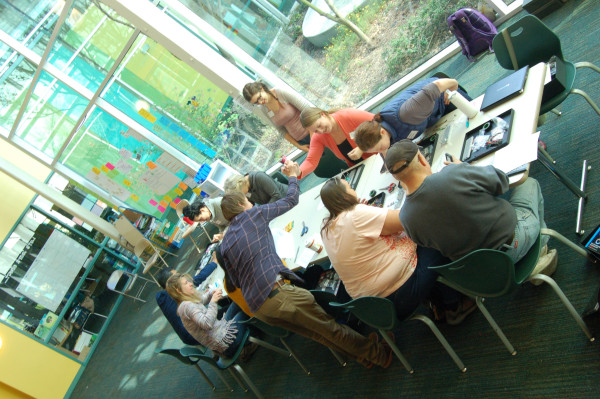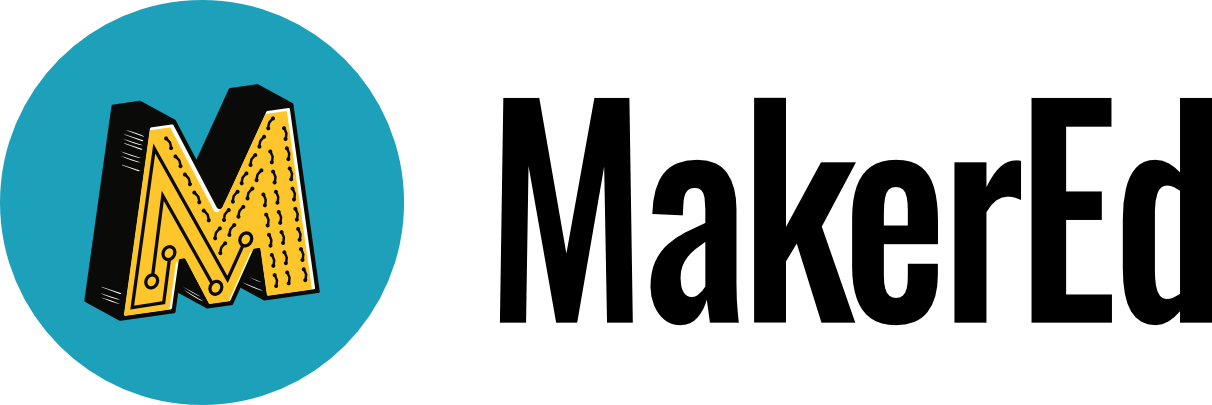Last Saturday, March 7, 2015, Maker Ed ran a professional development workshop for Young Makers mentors, entitled Physical Computing: Tinkering with Light, Sound, and Motion. With the generous support of the Google RISE award, we were thrilled to lead a workshop that introduced the concept of physical computing, an area that melds the physical with the digital world, as well as many of the common tools and materials used to get started. Just as importantly, we modeled the open-ended, inquiry-based facilitation approaches that mentors can utilize to allow for youth to work collaboratively to answer questions, work through hiccups, and explore their curiosities.
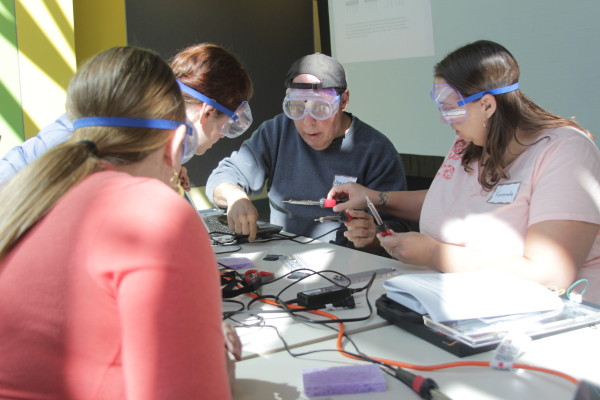
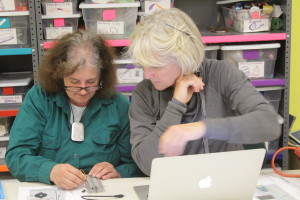 Hosted at Lighthouse Community Charter School’s Creativity Lab, it was an incredibly fun day with 10 passionate Young Makers mentors and coordinators. Mentors came from all over the Bay Area, from San Jose to Sacramento, representing clubs affiliated with 4H, independent afterschool organizations, and schools themselves. And of course, our three fantastic Regional Coordinators from YWCA Silicon Valley TechGYRLS, Bay Area Video Coalition, and Girl Scouts of Northern California were also present to join in the fun, learn alongside everyone else, and offer these skills and workshops to other educators in new training opportunities.
Hosted at Lighthouse Community Charter School’s Creativity Lab, it was an incredibly fun day with 10 passionate Young Makers mentors and coordinators. Mentors came from all over the Bay Area, from San Jose to Sacramento, representing clubs affiliated with 4H, independent afterschool organizations, and schools themselves. And of course, our three fantastic Regional Coordinators from YWCA Silicon Valley TechGYRLS, Bay Area Video Coalition, and Girl Scouts of Northern California were also present to join in the fun, learn alongside everyone else, and offer these skills and workshops to other educators in new training opportunities.
So many of our Young Makers in seasons past have expressed interest in coding and computer programming. Their projects often started with exploration of Scratch, or Lego Mindstorms, or other graphics-based drag-and-drop coding environments. Other projects exhibited at Maker Faire also integrated Arduino and other microcontroller platforms, and results are ever-whimsical, unique, and inspiring.
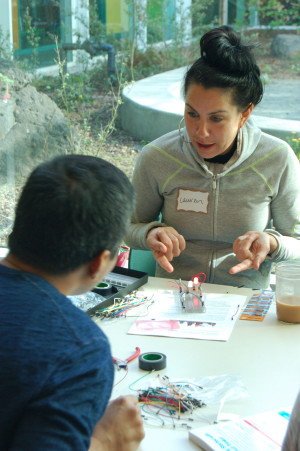 Knowing that Young Makers mentors can sometimes be intimidated to introduce concepts that they’re just starting to understand themselves, we wanted to lower the barrier and showcase the opportunity to explore and learn together. We poked and prodded the breadboards, and together, huddled with burritos in the sunshine, we uncovered tips and tricks for soldering and tinkered with code and timed LED blinking. There’s rarely a better way to spend a Saturday.
Knowing that Young Makers mentors can sometimes be intimidated to introduce concepts that they’re just starting to understand themselves, we wanted to lower the barrier and showcase the opportunity to explore and learn together. We poked and prodded the breadboards, and together, huddled with burritos in the sunshine, we uncovered tips and tricks for soldering and tinkered with code and timed LED blinking. There’s rarely a better way to spend a Saturday.
These Young Makers mentors will take these conceptual and facilitation skills back to their clubs and communities and offer the workshop, split into different sessions or altered to best fit the needs of their youth, to their students. We also provided 10 full sets of materials for all workshop participants, which included items like breadboards, soldering irons, Trinkets, LEDs, and sensors, to get them started. We also encouraged the use of recycled and craft materials to widen the possibilities of project ideas and applicability. Can’t imagine projects with pipe cleaners, toilet paper tubes, pencils, and Arduinos? We bet kids can.
Our discussions throughout the day brought out great insights and questions. We troubleshooted through installing Trinket drivers on PC operating systems and talked about how to introduce students to electricity without overwhelming them. We brainstormed fun ideas for engaging youth who are typically absorbed in only playing video games and shared past experiences for other ways of “physical computing” — learning programming logic by acting out lines of code!
We were so excited to be able to offer this opportunity, and we can’t wait to see the wonderful workshops that our mentors offer in turn. Computer science is truly an avenue to new ideas and projects galore. One of our workshop participants wrote, “I had so much fun.. and I really loved learning through discovery and peers…” With that, we hope to be able to offer more mentor workshops in the future!
This workshop was made possible by the generous support of Google for Education and the Google RISE award. The Young Makers program is supported through the contributions and dedication of Oracle. For more information on the workshop, including a pdf version of the guide, check out Workshop Descriptions.
